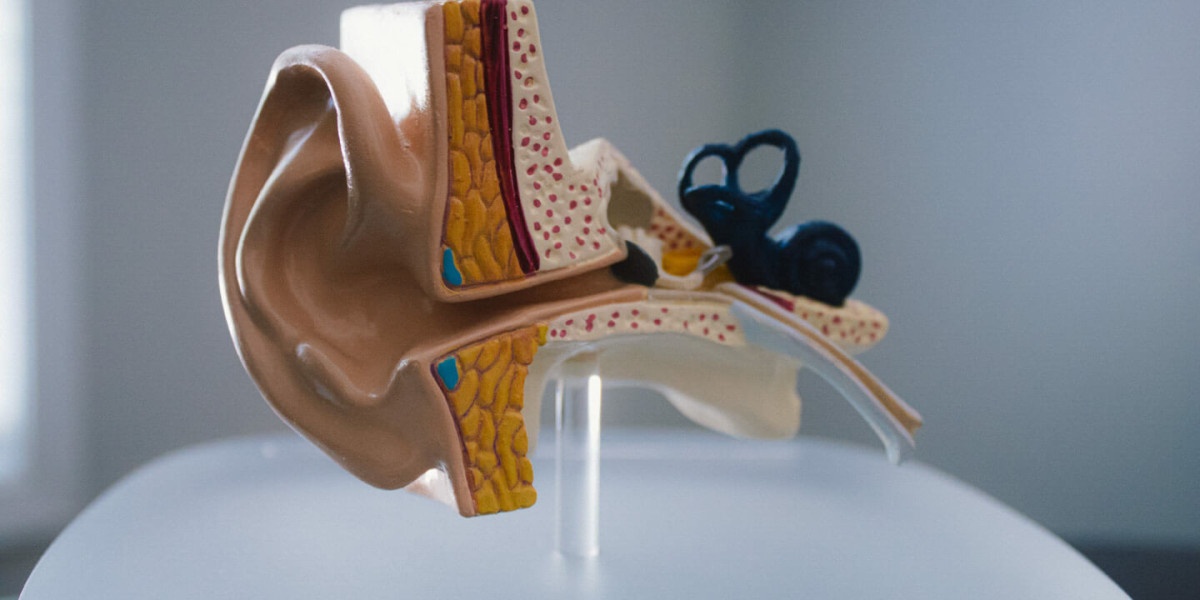Tinnitus, characterized by the perception of ringing, buzzing, or hissing sounds in the ears, affects millions globally. This often debilitating condition can significantly impact quality of life, prompting ongoing research and development into effective treatments. Recent advancements in tinnitus management have introduced new therapies and approaches that offer hope to those struggling with persistent symptoms. This blog delves into some of the most promising new treatments for tinnitus, highlighting their potential benefits and mechanisms.
Emerging Treatments for Tinnitus
- Neuromodulation Therapy
Neuromodulation therapy represents a cutting-edge approach to tinnitus management. This technique involves using electrical or magnetic stimulation to alter neural activity in the brain's auditory pathways. Two prominent methods include:
Transcranial Magnetic Stimulation (TMS): TMS uses magnetic pulses to stimulate specific areas of the brain associated with auditory processing. Research suggests that TMS can help reduce tinnitus severity by modulating abnormal neural activity. Clinical trials have demonstrated that repeated TMS sessions can lead to significant improvements in tinnitus symptoms for some individuals.
Transcranial Direct Current Stimulation (tDCS): tDCS involves applying a low electrical current to the scalp to influence brain activity. This non-invasive technique aims to rebalance the neural circuits involved in tinnitus. Preliminary studies have shown that tDCS may help alleviate tinnitus symptoms and improve overall quality of life.
- Cognitive Behavioral Therapy (CBT) Enhancements
Cognitive Behavioral Therapy (CBT) remains a cornerstone in tinnitus management, focusing on changing the negative thought patterns and emotional responses associated with the condition. Recent developments have expanded on traditional CBT approaches:
Internet-Based CBT: Online CBT programs offer a convenient and accessible way for individuals to engage in therapeutic exercises. These programs provide structured modules, interactive exercises, and support resources that can be tailored to individual needs, making CBT more widely available.
Combined CBT and Sound Therapy: Integrating CBT with sound therapy, such as sound masking or tinnitus retraining therapy (TRT), enhances the effectiveness of treatment. This combined approach addresses both the psychological and auditory aspects of tinnitus, offering a more comprehensive management strategy.
- Pharmacological Advances
Pharmacological treatments for tinnitus have traditionally been limited, but recent research is exploring new drug options:
Neurotransmitter Modulators: Investigational drugs that target neurotransmitters involved in auditory processing are showing promise. For example, medications that influence glutamate or GABA levels in the brain may help reduce tinnitus symptoms by normalizing neural activity.
Anti-Inflammatory and Antioxidant Agents: Researchers are also exploring the use of anti-inflammatory and antioxidant drugs to address underlying causes of tinnitus. These medications aim to reduce inflammation and oxidative stress, which may contribute to tinnitus development.
- Personalized Sound Therapy
Advancements in sound therapy involve tailoring acoustic stimulation to the individual's specific tinnitus profile. Innovations include:
Customized Soundscapes: Using advanced algorithms, sound therapy devices can create personalized soundscapes designed to mask tinnitus or promote habituation. These soundscapes are adjusted based on the frequency and volume of the tinnitus, offering a more targeted approach.
Hearing Aids with Integrated Tinnitus Management: Modern hearing aids come equipped with advanced tinnitus management features, such as customizable sound masking and relaxation programs. These devices not only amplify external sounds but also provide tools for managing tinnitus symptoms effectively.
- Gene Therapy and Regenerative Medicine
While still in experimental stages, gene therapy and regenerative medicine hold the potential for revolutionary tinnitus treatments:
Gene Therapy: Research is underway to explore how gene therapy might address tinnitus at a molecular level. By targeting specific genes involved in auditory function, scientists hope to develop treatments that could potentially restore normal hearing and reduce tinnitus.
Regenerative Approaches: Stem cell research and regenerative medicine aim to repair or replace damaged auditory cells in the inner ear. These approaches could potentially address the root causes of tinnitus, offering long-term relief and even a cure.
Conclusion
The landscape of tinnitus treatment is rapidly evolving, with innovative approaches offering new hope for those affected by this challenging condition. From neuromodulation therapies to personalized sound interventions and cutting-edge pharmacological research, these advancements highlight the ongoing commitment to improving tinnitus management. As research continues to progress, it is essential for individuals experiencing tinnitus to stay informed about the latest developments and consult with healthcare professionals to find the most effective treatment strategies tailored to their needs.



